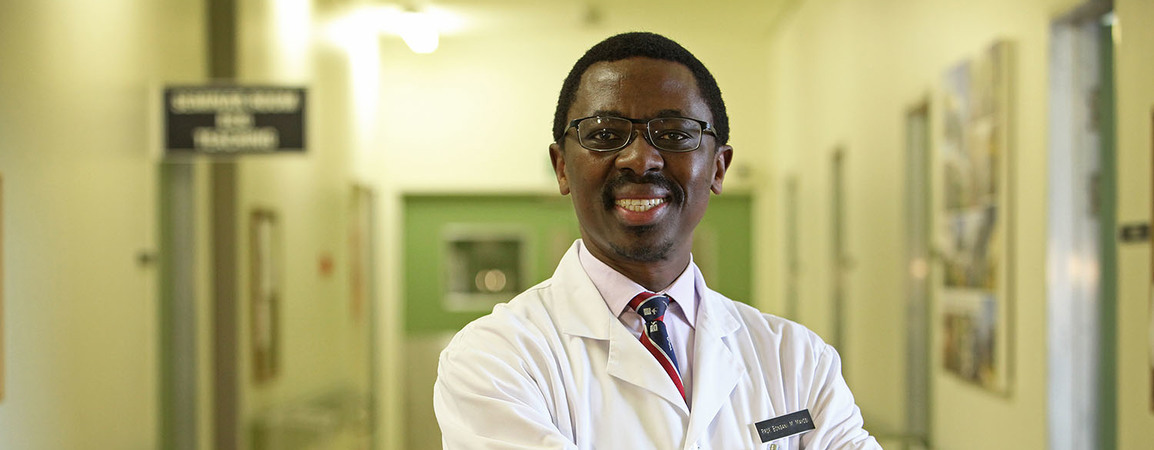Graduate employability: UCT top in Africa
13 September 2018 | Story Supplied. Photo Michael Hammond. Read time 4 min.
The University of Cape Town (UCT) has maintained its top position in Africa for graduate employability, and is placed 18th in the world for graduate employment (in work after one year), the 2019 Quacquarelli Symonds (QS) Graduate Employability Rankings show.
The university’s position as the leading African university in terms of graduate employability, based on a variety of measures with various weightings, puts UCT just outside the top 100 institutions globally.
The five key performance indicators include:
- employer reputation (30%), which is based on over 40 000 responses to the QS Employer Survey asking employers to identify the most competent and innovative graduates
- alumni outcomes (25%), based on successful alumni on over 150 high-achiever lists measuring desirable outcomes in a particular walk of life
- employer–student connections (10%), which surveys companies that have been present at events on campus or have promoted themselves on university-related websites
- partnerships with employers (25%), based on collaborative publications with global companies and work-placement related partnerships
- graduate employment rate (10%), which is the proportion of graduates in employment within one year of graduation, excluding those opting to pursue further studies.
Five South African institutions are ranked in the top 500, with UCT taking the top spot in Africa. The university is also ranked in the 101–150 band for the second consecutive year.
UCT achieves its best score, 97.2 out of the possible total of 100, for the “graduate employment rate” indicator, and ranks 18th in the world. The American University in Cairo and the University of the Witwatersrand are placed second and third respectively, both in the 201–250 band.
UCT’s next best score, of 89.7, is achieved for “alumni outcomes” and ranks 36th in the world. This recognises UCT’s strength in producing distinguished achievers rated as “wealthy, successful and powerful individuals”.
“This recognises UCT’s strength in producing distinguished achievers.”
Earlier this year, the 2018 graduate exit survey conducted by Careers Service, in the Centre for Higher Education Development (CHED), determined that UCT graduates are increasingly entrepreneurial – with 10% of the total April 2018 graduates who were employed reporting they were in fact self-employed.
Desired candidates
A total 39.4% of April 2018 graduands were employed at the time of graduation, with 45.3% choosing to study further. The high employment rate was hailed at the time as evidence that UCT graduates remain desired candidates in the world of work.
Although 19.7% of the graduates surveyed were still seeking work, the majority from the faculties of Engineering & the Built Environment, Health Sciences and Law were already employed at 54.1%, 53.2% and 62.1% respectively.
The majority of graduates who had jobs were earning a starting salary between R20 000 and R30 000 (22.1%), while a further 16.1% earned between R15 001 and R20 000.
The survey showed that the private sector remained, by far, the leading employer of UCT graduates, with 67% employed in the sector. The majority of graduates were employed in positions related to their fields of study (64.9%).
Professor Loretta Ferris, deputy vice-chancellor for transformation, said at the time that the graduate exit survey showed that a UCT degree “is in demand”. It was also heartening to see the rise in entrepreneurship among graduates, she added.
 This work is licensed under a Creative Commons Attribution-NoDerivatives 4.0 International License.
This work is licensed under a Creative Commons Attribution-NoDerivatives 4.0 International License.
Please view the republishing articles page for more information.
Bongani Mayosi
1967–2018
The University of Cape Town mourns the passing of Professor Bongani Mayosi, Dean of the Faculty of Health Sciences, who left us on the morning of Friday, 27 July. While this is a very difficult time for both students and staff, particularly those in the Faculty of Health Sciences, it is also a time to reflect on and celebrate the incredible life of one of the university’s finest academics and researchers.
Read #RememberingMayosi messages that have been received from the community so far.
Read letters of condolence.



Announcements
Letters of condolence
#RememberingMayosi




Speeches
Related articles
























